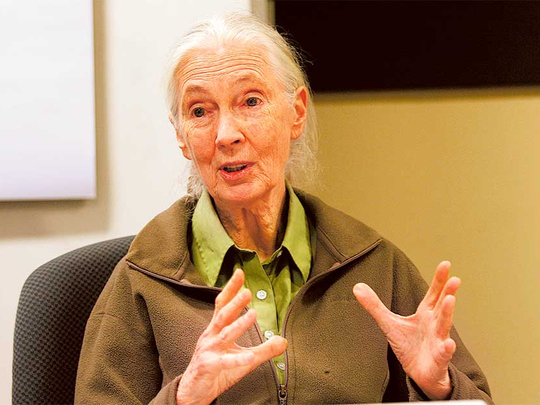
Dubai: Exotic wild animals have replaced stuffed toys for many schoolchildren in the UAE and with their parents’ consent, a top official said.
“We noticed that the main problem is related to kids who would like to have [exotic] animals and play with them as a toy. I am mentioning this to draw the attention to who is driving the demand for exotic animals: the demand is from kids,” Dr Elsayed Mohammad, Regional Director at the International Fund for Animal Welfare (IFAW) - Middle East and North Africa, told Gulf News.
Visits at a popular animal market, Dr Mohammad said, astound him, especially after Ramadan when the buying of these animals is rife.
“You will see mostly families, not individuals, going to the shop with their kids to buy what range from reptiles to primates sometimes, mammals, and many different species,” Dr Mohammad said.
And this trend involves no specific group, race, or social status.
“It’s not a matter of expatriate or locals, it’s not a matter of rich or poor because you can get an exotic pet from the market for Dh60. It’s about lack of awareness among families.”
“If you compare how many lions, how many pythons were imported to the UAE, you will see that the big problem is driven by kids, teenagers. When we worked with kids before, we noticed that almost 100 per cent of the kids had had exotic pets at least once in their lives.”
The comments came during a meeting with Dr Jane Goodall, renowned primatologist, anthropologist and UN Messenger of Peace, who is in the UAE for the official launch of her Roots and Shoots programme this week. This youth-led community action and learning programme of the Jane Goodall Institute aims to come up with community-based solutions to issues the youth and adults face today.
“My sad answer is unfortunately, it’s not just here. This illegal trade, if you go to the US, is about people who just want to show off. I was just in Hong Kong where they seized a lot of these illegally imported tortoises and things and they’re destroying the species,” Dr Goodall told Gulf News. “Species are becoming extinct. And a lot of it is because of people who have it as a hobby as adults, and yes children too, but I haven’t thought of it in those terms before.”
Dr Mohammad said that on the national level, the UAE government has made sustained efforts to combat the illegal animal trade and regulate it through many legislations passed in recent years.
“The UAE is still considered a leader for combating wildlife trade and adopting strong legislation. The UAE is the first country to adopt legislation for regulating endangered species internationally in 2002, Law No 11 of 2002. It is also the first country to adopt legislation for animal welfare in the GCC countries, Law No 16 for 2007,” Dr Mohammad said.
Because of these legislations, the country has seen a significant drop in imported animals — from 114 lions imported to the UAE from 2010 to 2012, only five were imported in 2013. The same goes for iguanas from 19,731 in the same period to 8,460 in 2013.
But the ideal scenario, both Dr Goodall and Dr Mohammad argued, would be to “keep the wild in the wild”. It’s not the numbers alone that are a matter of concern, it’s the mentality among people who think animals can be played with.
Both conservationists believe that children can be taught about the dangers of keeping exotic pets and caring for animals and the environment through the Roots and Shoots Programme, and later influence their parents to change their mind set as well.
“We can work...to save the environment, species, to protect them [but] if the new generations are not going to be better stewards than we’ve been, we might as well all give up,” Dr Goodall said.












